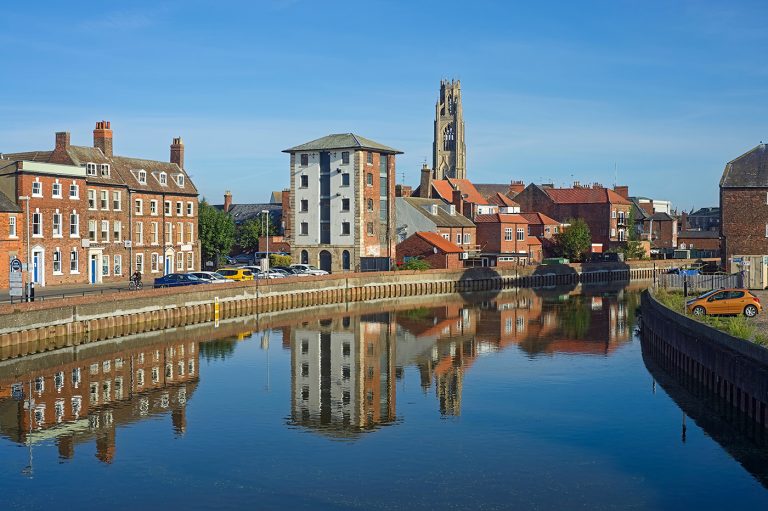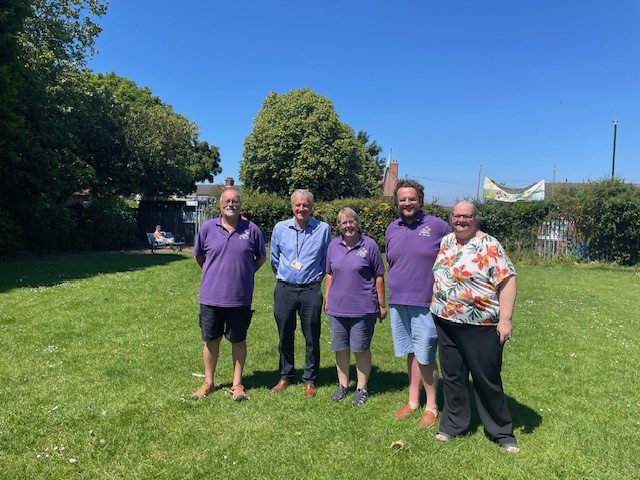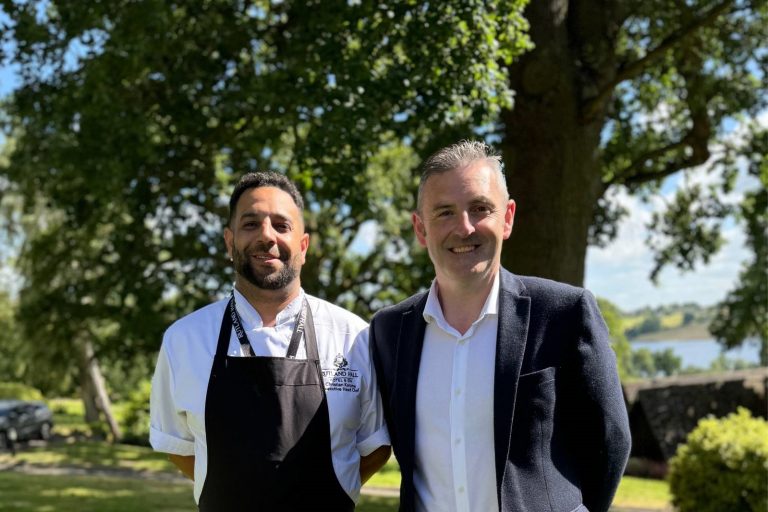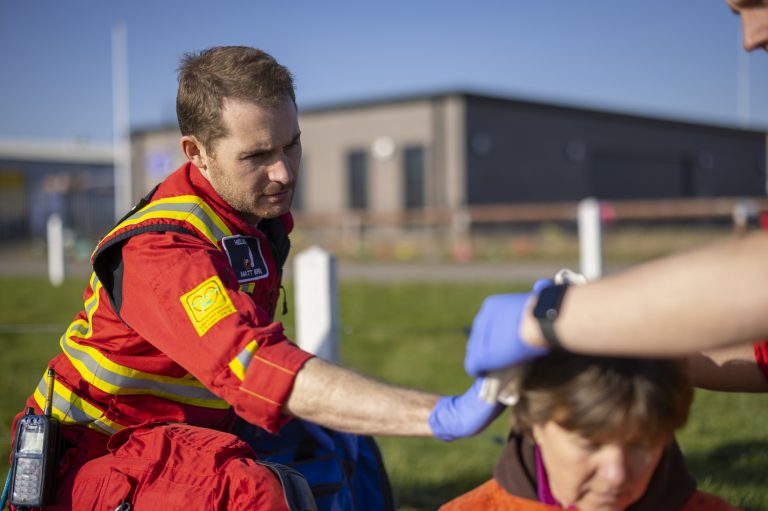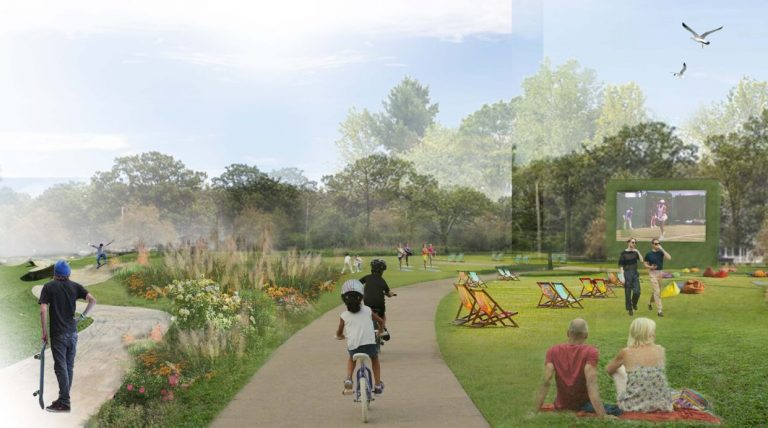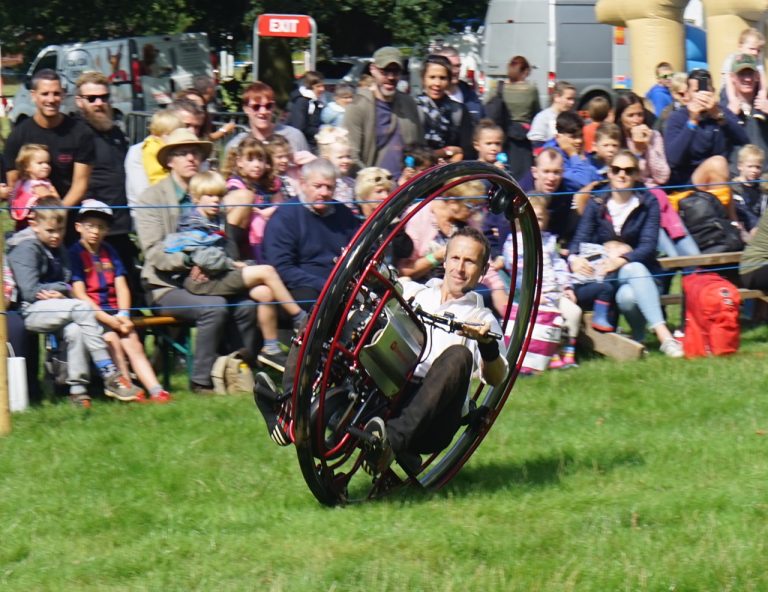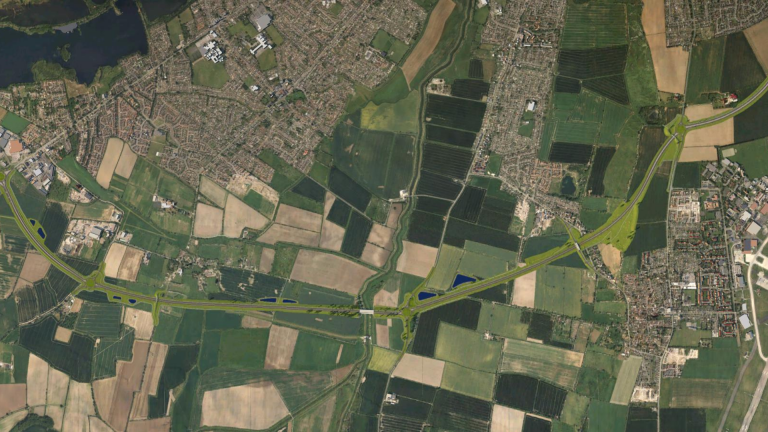The ‘Stage 3’ concept designs for two key projects in Cleethorpes, Market Place and Pier Gardens, are heading into the democratic process, being scrutinised by panel members on 15 July, and then Cabinet after that.
The outline concepts were originally developed in the Cleethorpes Masterplan, which had responses from thousands of people, saying what they wanted to see in the spaces in the future.
Since then, there have been detailed discussions with local businesses, drop-in sessions and online engagement for anyone to give their views, as well as group sessions with creative people, young people and other potential users of the spaces.
Pier Gardens
The new design harks back to the historic use of space, where people went to spend time. The new vision brings people of all ages and abilities together, and creates a more family orientated area, alongside areas for quiet reflection and education, whilst also increasing biodiversity in the resort.
The design proposes a ‘zoning’ system to provide this mix of uses, which will provide a mixture of uses across the park with a consistent theme throughout.
- arrival space at Sea Road/Alexandra Road junction, creating a welcoming space to the gardens;
- events zone to support a mixture of activities/events that could take place;
- play/recreation zone which would consist of a larger central space and provide a mixture of activities for young and older children alike;
- reflection zone at the Sea View Street end of the gardens supporting the existing armed forces memorials that are situated there.
The project makes a vital contribution to heritage led regeneration, complementing other work in the resort.
Market Place
This project lies within the footprint of the hamlet of Oole which is one of the three hamlets that formed the resort Cleethorpes in the latter half of the 1800’s. It links back to the historic use of space where local commerce and dwell time were a key part of the local community activity.
Through the redesign of public space, this project will bring people together again, and raise awareness of Cleethorpes’ unique Victorian built heritage. It links to Alexandra Road which has been the catalyst for heritage led regeneration in Cleethorpes through the successful Townscape Heritage Project.
The concept designs have been developed to take into account challenges around parking and highways issues. They also consider the needs of local businesses as well as responses to the detailed consultation earlier this year.
The designs for Market Place have allowed for a space that is free of traffic and vehicles for parts of the day to allow a more open space that can support markets and events, or allow local businesses to have external dining, for example. The ultimate aim is to create a space that people want to spend more time in.
In order to support the change, it’s proposed to create a new public car park behind the Old Vic Public House just a few minutes’ walk from Market Place, introduce short stay only parking within the existing High Street Car Park, and look at existing parking bays on Osborne and Cross Streets to make sure there’s the right mix of parking, loading and drop off opportunities to meet business and resident needs. Resident parking permits could also be implemented on the streets that lead into Market Place to make sure residents weren’t displaced.
Next stage
If there are only minor changes to the Pier Gardens and Market Place schemes, or they are agreed in full, then the designs will progress to the next stage of work, full technical design, which looks at, for example, types of materials to be used. This then forms the information to be used for the procurement of contractors.
The work to these schemes and the Sea Road building is being funded through the Government’s Levelling Up Funding. The projects form the first phase of delivery of the Cleethorpes Masterplan.
Picture: Flexible space at Pier Gardens. Image credit: North East Lincolnshire Council



